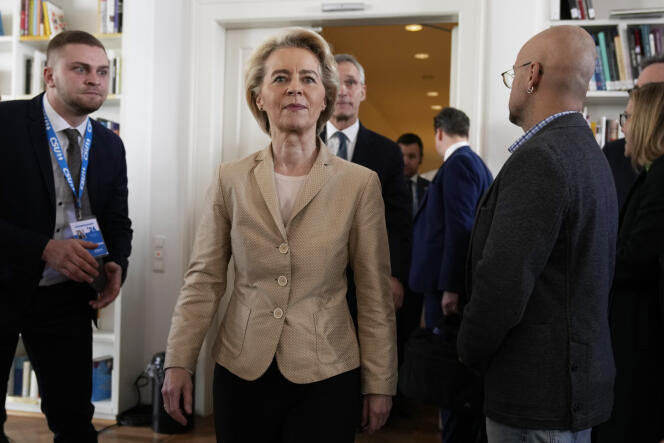


Ursula von der Leyen is not one to improvise. Meticulously, without losing her characteristic smile, the German President of the European Commission is progressing her plans. On Monday, February 19, in Berlin, in front of her Christian Democratic Union (CDU) party colleagues, she made her candidacy for a second term in Brussels official. "Today, five years later, I am making a very conscious and well-considered decision. I want to run for a second term," she said in Berlin after a CDU board meeting. In the wake of her announcement, the European People's Party (EPP) EP grouping – which brings together Europe's right-wing parties – is expected to hold on to her at its congress in Bucharest on March 6 and 7.
At 65, German Chancellor Angela Merkel's former minister is playing out her career on shaky ground, requiring careful consideration of every step. Even if her reappointment as head of the European Union's (EU) executive is looking good, it's not a foregone conclusion. "You don't make yourself president of the Commission. She's going to have to work up a sweat," said a European diplomat. After the European elections, scheduled for June 6-9, member states will have to choose her successor (by qualified majority), and the European Parliament will then have to confirm this with a vote (by absolute majority).
Every five years, the 27 member states also appoint the presidents of the European Council and Parliament, as well as the Union's High Representative for Foreign Affairs. At the same time, they negotiate positions of influence in the European Union administration and try to assert their priorities with the next leaders of the Brussels institutions. This year, the grand bargaining will extend to the General Secretariat of NATO and the Executive Board of the International Monetary Fund, whose incumbents are preparing to leave.
Under the EU Treaties, the 27 member states must take account of election results when appointing the Commission president. Von der Leyen's EPP party has the most heads of state and government at the Council table (12 today), and should be the leading political party after the elections.
For the rest, the Commission president can point to her track record. "Von der Leyen has been central to crises," said Sébastien Maillard from the Institut Jacques Delors think-tank. Between Covid-19, which brought the world to a standstill, and the war in Ukraine, which resurrected conflict on the continent and confronted Europeans with their dependencies – particularly in terms of defense and energy – she has been party to major EU developments.
You have 75.42% of this article left to read. The rest is for subscribers only.
